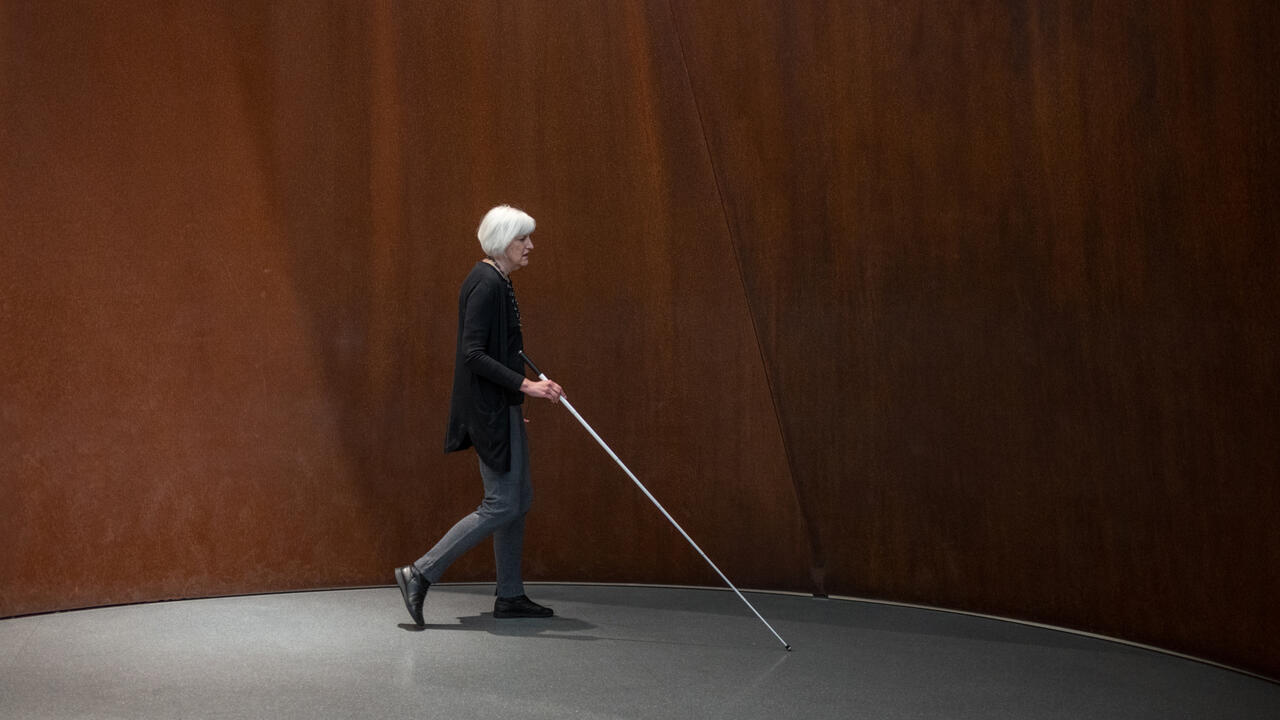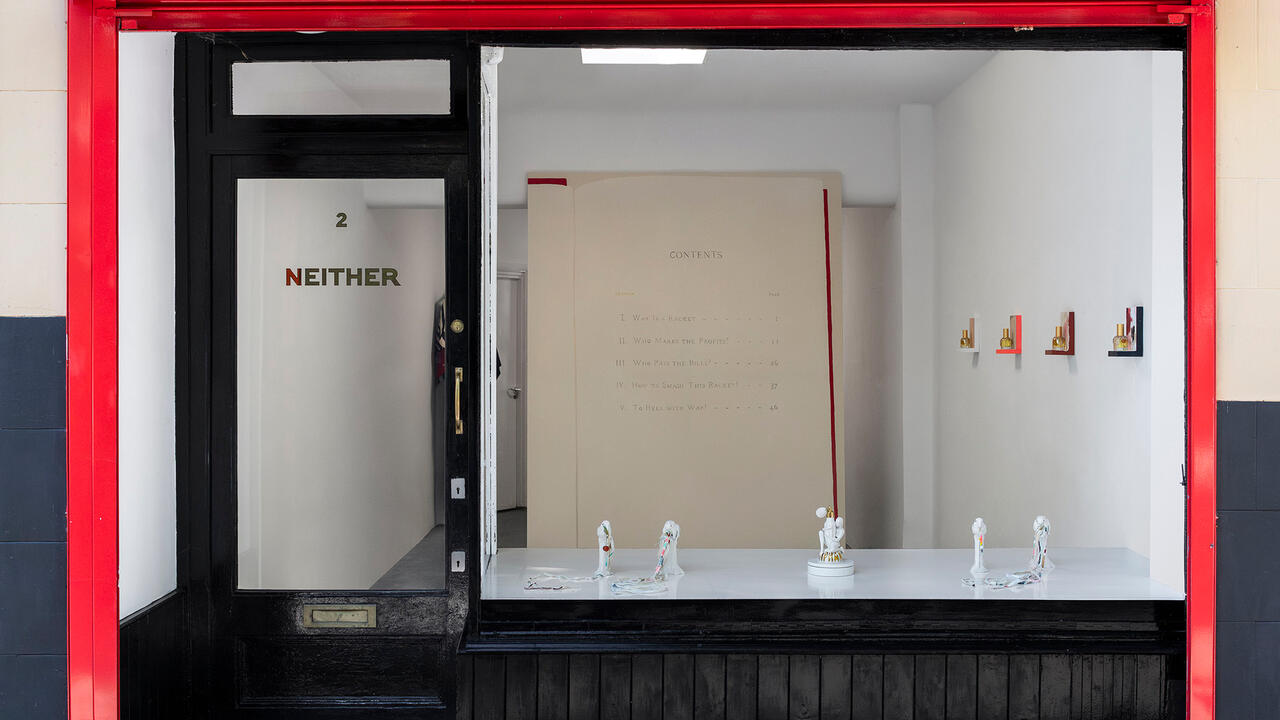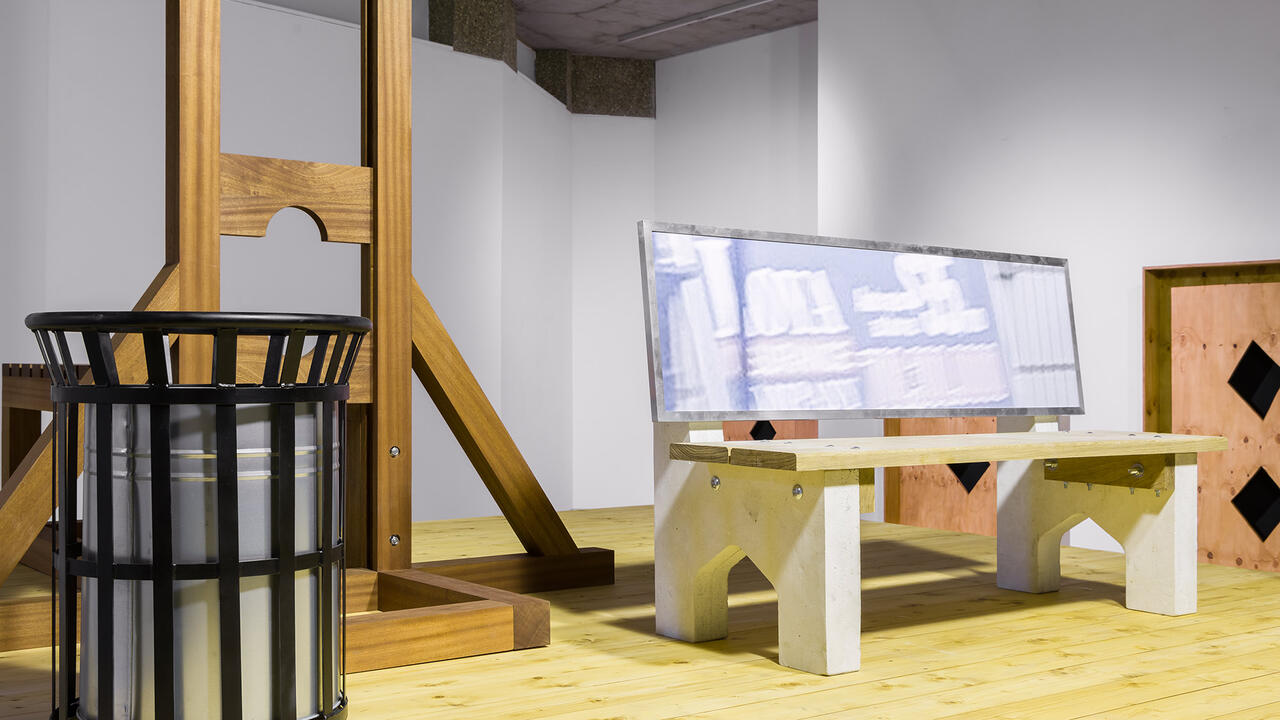Jef Geys
La Loge, Brussels, Belgium
La Loge, Brussels, Belgium

The Freemasons who once met in the temple that now houses La Loge were amongst the first in Belgium to allow women to become members. Women also appear, in various guises, in Jef Geys’s exhibition ‘Chalet’. In the video Zwarte Lola (Black Lola, c.1965), shot in a local bar that Geys co-managed in the 1960s, the singer Annie Heuts performs under her stage name ‘Black Lola’ – an allusion to her black hair. Dancing in her knickers, she croons in Flemish: ‘I am Lola, Black Lola, I am Lola from the striptease bar’. The photograph Buckyball (1992) depicts a naked woman standing with her arms by her sides, her head within a geodesic dome, while Lingerie Geo & Lis (1998), presented in the temple’s antechamber, sees a pane of glass weighed down by a paving stone flatten an assortment of worn bras and pants. Three black and white prints from the photographic series ‘Fruitlingerie’ (1998), in which women’s underwear is wrapped around fruit, are pinned to the walls, with more installed in the basement. In the latter group, cucumbers and courgettes peep between pairs of melons and oranges, suggesting ingenious sexual acts or transsexual bodies. Geys offers us the female form, but it is one to be ogled, hooded and toyed with. Here, femininity and its sexualization are the stuff of entertainment, not agency.

Having spent most of his life in Balen, Belgium, where he worked as a teacher for many years, Geys has cultivated a reputation as an eccentric freethinker, more concerned with the activities of his community than the art world. Since 1971 he has published Kempens Informatieblad, a pamphlet named after the local newspaper that he once worked for, which is dedicated to critics’ interpretations of his art. This localism is echoed in the exhibition’s title, ‘Chalet’, which refers to a shed that Geys built in his backyard in 1977, shown here in a photographic series hanging in La Loge’s basement. Nearby are two vitrines: the first, Kunst Tonen (Art Display, 2017), contains printouts relating to Balen; the second, Untitled (2017), displays documents connected to Geys’s work. These presentations highlight the range of the artist’s practice, in which a tendency for visual play contrasts with a devotion to community and self-examination.
Upstairs, long, wall-hung sheets of graph paper feature a numbered list of handwritten questions about ‘women’, translated into 13 languages. These are Geys’s ‘!Women’s Questions?’ (1964–2017), which were first developed with his students at a local all-girls school to foster a discussion around feminism. The final number in the list is left blank, suggesting a work in progress, but the questions are showing their age and, with no evidence of the conversations that would have surrounded its compilation, the list seems preserved in aspic. Closed structures (‘Do women have a specific role in society?’) invite a ‘yes’ or ‘no’ answer, biological sex is equated with gender, and there is no mention of trans identities. ‘!Women’s Questions?’ exposes the trickiness of what we term ‘contemporary’: the particulars of this enquiry may have been radical 50 years ago, but they now read as archaic.

The show also includes two works by the German-born Swiss artist Méret Oppenheim. Installed in an alcove adjacent to the main room are a still life of ashtrays and matches and an abstract geometric painting that echoes the squares and circles of the masonic lodge’s design. On a low table, a monitor plays a Dutch documentary about Oppenheim. It is a mysterious addendum to the show, but it is the single moment in which a woman’s ideas and voice are allowed a full range of expression. But then, as the only female member of Breton’s surrealist circle in the 1930s, Oppenheim had already proven herself as one of the boys.
Main image: 'Chalet, an exhibition by Jef Geys', 2017, installation view, La Loge, Brussels, Belgium. Courtesy: the artist and La Loge, Brussels






















